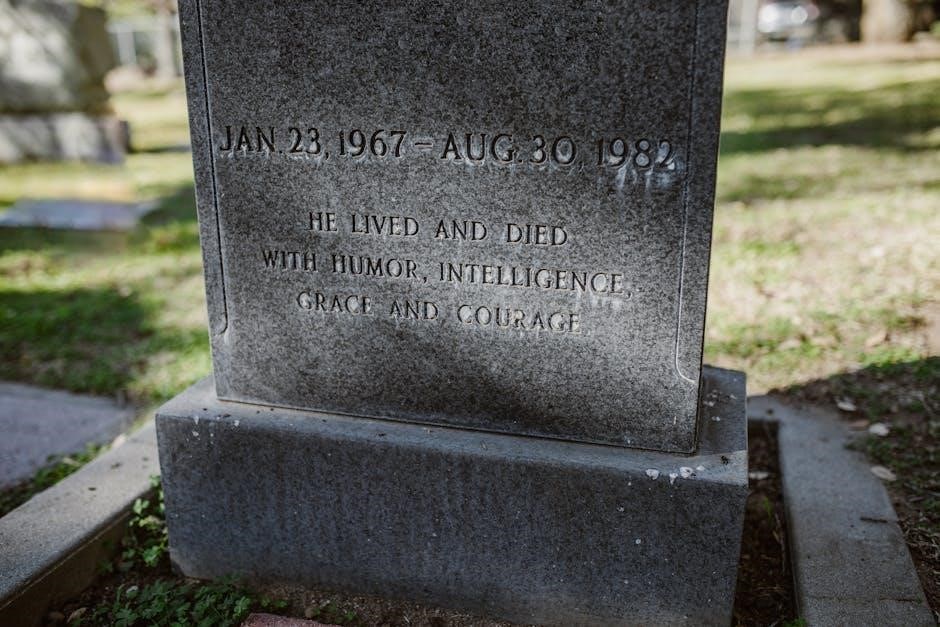Trauma and recovery processes involve understanding symptoms, effects, and healing methods through various therapies and support systems, helping individuals cope with traumatic experiences and regain control over their lives slowly.
Overview of the Book
The book Trauma and Recovery provides a comprehensive understanding of the trauma and recovery process, offering insights into the experiences of victims of sexual and domestic violence, combat veterans, and survivors of political terror. The author, Judith Herman, presents a structured framework for understanding the journey of recovery, which is divided into three main stages. The book represents the culmination of two decades of research and clinical work, reflecting a growing body of experience with traumatized individuals. It explores the relationship between trauma and power, proposing that a person who has been traumatized needs a specific therapy. The book has been praised for its social commentary, which resonates with readers who have experienced trauma. The author’s work has been influential in the field of trauma and recovery, providing a valuable resource for individuals seeking to understand and heal from traumatic experiences. Various editions of the book are available, including a pdf version.

Stages of Recovery
Recovery involves three distinct stages of healing and growth, helping individuals overcome traumatic experiences and regain control over their lives, through a combination of therapy and support systems slowly.
Understanding the Journey of Recovery
Understanding the journey of recovery is crucial for individuals who have experienced trauma, as it allows them to make sense of their emotions and experiences. Through self-reflection and support systems, individuals can begin to heal and rebuild their lives. The journey of recovery is unique to each individual, and it is essential to approach it with patience and compassion; By acknowledging the impact of trauma and taking small steps towards healing, individuals can start to regain control over their lives. This process involves confronting painful memories and emotions, but it also offers the opportunity for growth and transformation. With the right support and guidance, individuals can navigate the journey of recovery and emerge stronger and more resilient. The recovery process is a long-term commitment, but it is a necessary step towards healing and rebuilding a fulfilling life.

Techniques for Dealing with Trauma
Various therapies and strategies help individuals cope with traumatic experiences and manage symptoms effectively every day.
Workbook for Understanding Trauma
This workbook contains 12 homework assignment worksheets to help individuals understand how trauma has affected them and learn specific techniques to deal with symptoms and immediate concerns. The workbook acts as a starting point for understanding trauma and beginning the recovery process. It does not include every technique available, but rather provides a foundation for further learning and growth. By working through the worksheets, individuals can gain a deeper understanding of their trauma and develop effective coping strategies. The workbook is designed to be a useful tool for those seeking to recover from trauma, and it can be used in conjunction with other therapies and support systems. The goal of the workbook is to provide a safe and supportive environment for individuals to explore their trauma and begin the healing process. It is an important resource for those seeking to understand and overcome trauma.

Relationship Between Trauma and Power
Judith Herman explored the relationship between trauma and political power, proposing therapy for traumatized individuals, examining the connection between abuse and authority figures slowly and carefully always.
Exploring the Connection
The connection between trauma and power is a complex one, with many factors at play. Judith Herman’s work explores this relationship, shedding light on the ways in which trauma can be used as a means of exerting power and control over individuals. This can be seen in cases of sexual abuse, where the perpetrator uses their power and authority to exploit and harm their victim. The internet provides a wealth of information on this topic, including articles and studies that examine the link between trauma and power. By exploring this connection, we can gain a deeper understanding of the ways in which trauma affects individuals and society as a whole, and work towards creating a more just and equitable world. The relationship between trauma and power is multifaceted and far-reaching, affecting many aspects of our lives and society.
Complex PTSD
Pete Walker’s work focuses on complex PTSD, providing insights and guidance for individuals struggling with this condition through various online resources and support systems slowly every day.
Pete Walker’s Work
Pete Walker’s work on complex PTSD has been instrumental in helping individuals understand and cope with their traumatic experiences. His approach focuses on providing a comprehensive framework for healing and recovery. Through his writing and online resources, Walker offers guidance on managing symptoms and developing coping strategies. His work has been widely praised for its accessibility and insight, making it a valuable resource for those struggling with complex PTSD. Walker’s approach is centered on the idea that individuals can heal and recover from their traumatic experiences through a combination of self-care, therapy, and support. His work has helped many people find hope and healing, and his resources continue to be a vital part of the trauma and recovery community. By providing a clear and compassionate understanding of complex PTSD, Walker’s work has made a significant contribution to the field of trauma and recovery.

Importance of Social Support
Social support networks play crucial roles in helping individuals heal and recover from traumatic experiences through emotional connections and practical help slowly and carefully always.
Trauma Contagion in Partners
Trauma contagion in partners of survivors of childhood sexual abuse is a significant concern, as it can affect their relationships and overall well-being. Partners may experience emotional distress, anxiety, and depression due to their loved one’s traumatic experiences. The trauma can be transferred through various means, including emotional connection, shared experiences, and intimacy. It is essential for partners to be aware of the potential risks and take steps to protect themselves, such as seeking therapy and support groups. By doing so, they can better cope with the trauma and provide a supportive environment for their loved one’s recovery. A strong support system is crucial in helping survivors heal, and partners play a vital role in this process. With the right tools and resources, partners can navigate the challenges of trauma contagion and build a stronger, more resilient relationship. Effective communication is key.
Healing from trauma requires patience, support, and effective therapies to regain control over life slowly and steadily always.
Final Thoughts
Trauma and recovery is a complex and sensitive topic that requires a deep understanding and empathy towards those who have experienced traumatic events. Through various therapies and support systems, individuals can learn to cope with their symptoms and regain control over their lives. The journey of recovery is unique to each person and may involve a range of emotions, challenges, and successes. It is essential to approach this topic with care and compassion, recognizing the resilience and strength of those who have survived trauma. By providing a safe and supportive environment, we can help individuals heal and move forward, ultimately leading to a more fulfilling and meaningful life. Effective therapies and support systems are crucial in this process, and it is essential to continue researching and developing new methods to aid in trauma recovery.





